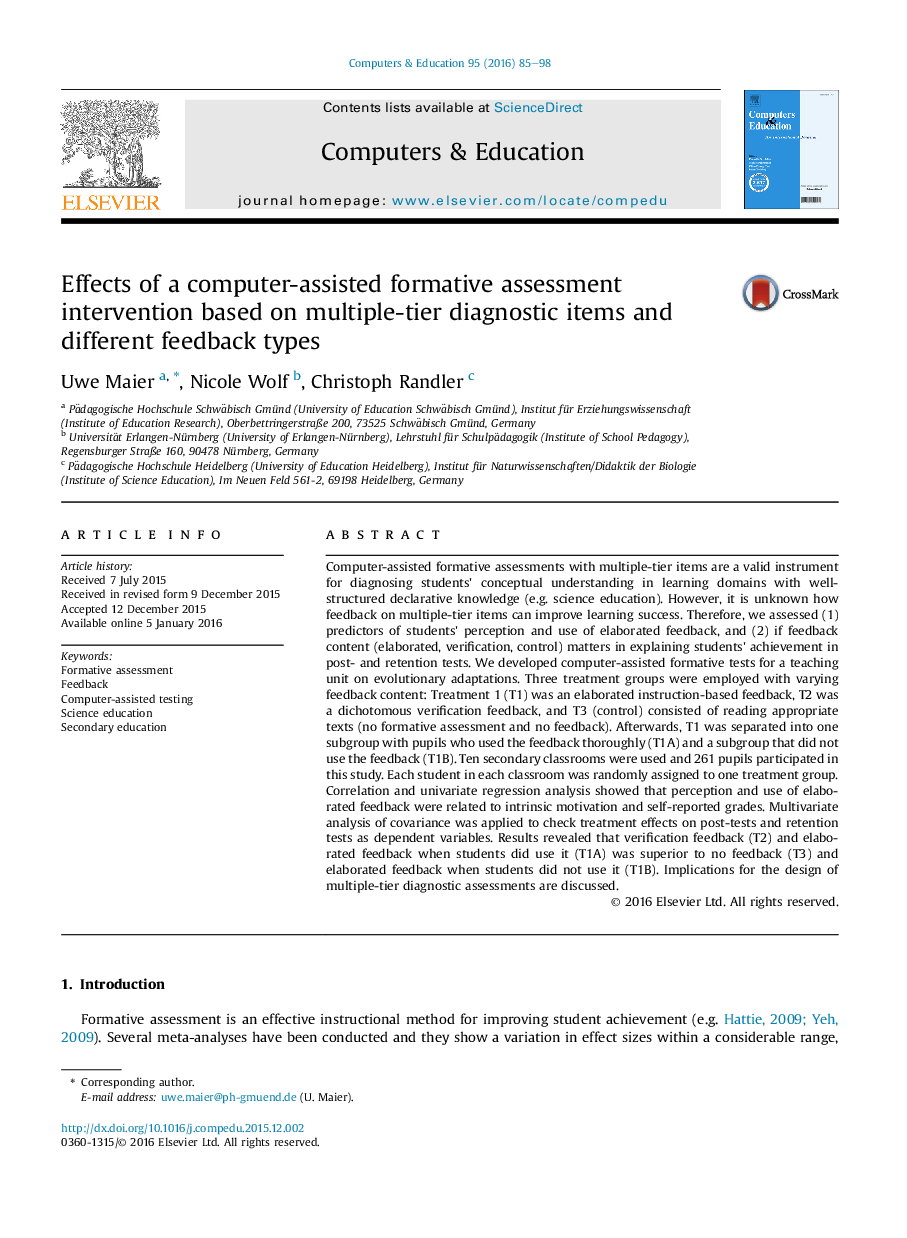| کد مقاله | کد نشریه | سال انتشار | مقاله انگلیسی | نسخه تمام متن |
|---|---|---|---|---|
| 6834899 | 618164 | 2016 | 14 صفحه PDF | دانلود رایگان |
عنوان انگلیسی مقاله ISI
Effects of a computer-assisted formative assessment intervention based on multiple-tier diagnostic items and different feedback types
ترجمه فارسی عنوان
اثرات مداخله ارزشیابی مبتنی بر کامپیوتر با استفاده از اقلام تشخیصی چند سطحی و انواع بازخورد متفاوت
دانلود مقاله + سفارش ترجمه
دانلود مقاله ISI انگلیسی
رایگان برای ایرانیان
کلمات کلیدی
ارزیابی تکوینی، بازخورد، آزمایش تست کامپیوتری، آموزش علوم، آموزش متوسطه
موضوعات مرتبط
علوم انسانی و اجتماعی
علوم اجتماعی
آموزش
چکیده انگلیسی
Computer-assisted formative assessments with multiple-tier items are a valid instrument for diagnosing students' conceptual understanding in learning domains with well-structured declarative knowledge (e.g. science education). However, it is unknown how feedback on multiple-tier items can improve learning success. Therefore, we assessed (1) predictors of students' perception and use of elaborated feedback, and (2) if feedback content (elaborated, verification, control) matters in explaining students' achievement in post- and retention tests. We developed computer-assisted formative tests for a teaching unit on evolutionary adaptations. Three treatment groups were employed with varying feedback content: Treatment 1 (T1) was an elaborated instruction-based feedback, T2 was a dichotomous verification feedback, and T3 (control) consisted of reading appropriate texts (no formative assessment and no feedback). Afterwards, T1 was separated into one subgroup with pupils who used the feedback thoroughly (T1A) and a subgroup that did not use the feedback (T1B). Ten secondary classrooms were used and 261 pupils participated in this study. Each student in each classroom was randomly assigned to one treatment group. Correlation and univariate regression analysis showed that perception and use of elaborated feedback were related to intrinsic motivation and self-reported grades. Multivariate analysis of covariance was applied to check treatment effects on post-tests and retention tests as dependent variables. Results revealed that verification feedback (T2) and elaborated feedback when students did use it (T1A) was superior to no feedback (T3) and elaborated feedback when students did not use it (T1B). Implications for the design of multiple-tier diagnostic assessments are discussed.
ناشر
Database: Elsevier - ScienceDirect (ساینس دایرکت)
Journal: Computers & Education - Volume 95, April 2016, Pages 85-98
Journal: Computers & Education - Volume 95, April 2016, Pages 85-98
نویسندگان
Uwe Maier, Nicole Wolf, Christoph Randler,
